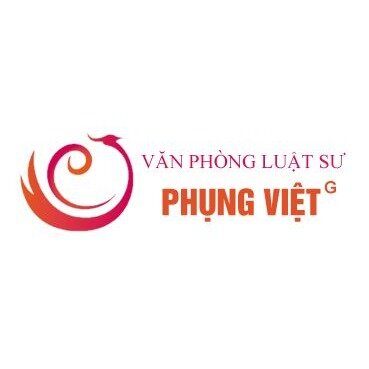Best Landlord & Tenant Lawyers in Quan Binh Thanh
Share your needs with us, get contacted by law firms.
Free. Takes 2 min.
Free Guide to Hiring a Real Estate Lawyer
List of the best lawyers in Quan Binh Thanh, Vietnam
About Landlord & Tenant Law in Quan Binh Thanh, Vietnam
Quan Binh Thanh, located in Ho Chi Minh City, Vietnam, is a bustling district known for its mix of residential and commercial properties. Landlord and tenant laws in this region, like the rest of Vietnam, are primarily governed by the Law on Housing and the Civil Code. These laws aim to regulate rental agreements, ensuring the rights and responsibilities of both parties are balanced. The laws also cover various elements such as security deposits, lease terms, rent increases, maintenance duties, and termination conditions, striving to maintain fairness in the landlord-tenant relationship.
Why You May Need a Lawyer
Engaging a lawyer may be beneficial in several situations pertaining to landlord and tenant matters in Quan Binh Thanh. Common scenarios include disputes over lease agreements, issues with security deposits, disagreements on property repairs and maintenance, eviction processes, and illegal rent increases. Lawyers specializing in this area can provide valuable guidance, help draft or review leases, and represent your interests in negotiations or court proceedings if necessary.
Local Laws Overview
In Quan Binh Thanh, key aspects of landlord-tenant laws include the necessity for written rental agreements for any lease longer than six months, limitations on security deposits usually set at one or two months' rent, and requirements for landlords to provide at least three months' notice for rent increases. Laws also emphasize the need for both parties to keep the property in a condition suitable for its intended use. Eviction of tenants is regulated, requiring landlords to obtain a court order, except in specific circumstances such as non-payment of rent or severe breach of contract.
Frequently Asked Questions
What should be included in a rental agreement?
A rental agreement should include the names of both parties, the lease duration, the rental amount and payment terms, details about the property, responsibilities for utilities and repairs, conditions for termination, and security deposit terms.
Are verbal rental agreements legally binding in Vietnam?
While verbal agreements can be valid for short-term leases under six months, it is highly advisable to have a written contract to prevent misunderstandings or disputes.
What is the standard duration of a rental lease?
Leases are typically formed for one or two years, but this can vary. It's important for both parties to clearly define the lease duration in the rental agreement.
How much can a landlord legally increase rent?
Rent increases should be outlined in the rental agreement. Generally, landlords must provide at least three months' notice before increasing the rent, depending on the contract terms.
What are a tenant's rights regarding property maintenance?
Tenants have the right to live in a property that is well-maintained and safe. Landlords are responsible for significant repairs unless there's an agreement stating otherwise.
Can a landlord evict a tenant without notice?
No, landlords must follow a formal eviction process, usually starting with providing notice and potentially requiring a court order depending on the situation.
How can tenants recover a security deposit?
Security deposits should be returned at the end of the lease, assuming no damages beyond normal wear and tear. Tenants can demand the return of the deposit if delayed.
What are the consequences of an early lease termination?
Breaking a lease early could lead to financial penalties as stipulated in the rental agreement. Tenants and landlords should discuss terms for early termination to reach a mutual agreement.
Is subletting allowed under Vietnamese law?
Subletting is permissible only if the rental agreement allows it, or with explicit consent from the landlord. Unauthorized subletting can lead to lease termination.
Who is responsible for utility bills?
Responsibility for utility bills should be specified in the rental agreement. Typically, tenants pay their own usage, but this can vary depending on the mutual agreement.
Additional Resources
For more guidance or assistance, individuals can approach the Ho Chi Minh City Department of Construction, which handles housing and related issues. Local legal aid organizations and tenant advocacy groups can also provide support, advice, and mediation services.
Next Steps
If you need legal assistance with landlord and tenant matters, it's advisable to start by consulting with a legal professional experienced in Vietnamese housing law. Make sure to gather all relevant documents related to your case, such as your lease agreement, receipts, and any correspondence with the landlord. Schedule a consultation to explore your legal options and determine the most appropriate course of action for your situation.
Lawzana helps you find the best lawyers and law firms in Quan Binh Thanh through a curated and pre-screened list of qualified legal professionals. Our platform offers rankings and detailed profiles of attorneys and law firms, allowing you to compare based on practice areas, including Landlord & Tenant, experience, and client feedback.
Each profile includes a description of the firm's areas of practice, client reviews, team members and partners, year of establishment, spoken languages, office locations, contact information, social media presence, and any published articles or resources. Most firms on our platform speak English and are experienced in both local and international legal matters.
Get a quote from top-rated law firms in Quan Binh Thanh, Vietnam — quickly, securely, and without unnecessary hassle.
Disclaimer:
The information provided on this page is for general informational purposes only and does not constitute legal advice. While we strive to ensure the accuracy and relevance of the content, legal information may change over time, and interpretations of the law can vary. You should always consult with a qualified legal professional for advice specific to your situation.
We disclaim all liability for actions taken or not taken based on the content of this page. If you believe any information is incorrect or outdated, please contact us, and we will review and update it where appropriate.








